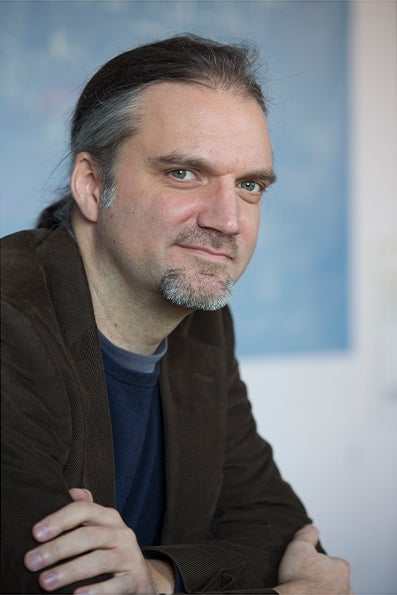Career path
I am a Professor at the Vrije Universiteit of Amsterdam and staff member at the Gravitational Wave Group at Nikhef. I studied Physics at the Leibnitz Universität Hannover, followed by a Ph.D. in 2003 at the GEO600 detector. I then helped to complete the first Virgo detector near Pisa before joining the faculty of the University of Birmingham in 2005, where I later I co-founded the Institute of Gravitational Wave Astronomy. In 2020 I moved to the Netherlands and joined the VU and Nikhef.
Research interests
My main research focus is gravitational wave science, in particular instrumentation for large ground-based facilities. I specialise in laser interferometry, quantum optics and numerical modelling. A laser interferometer lies at the heart of the detectors that convert the GW strain into an optical phase signal, and opto-mechanical couplings at the quantum level create a completely new experimental system never realised before. We combine advanced interferometer configurations and new optical technology to achieve the outstanding sensitivity of our detectors. It is of key importance to understand the noise propagation through the optical system. I support the current LIGO and Virgo detectors through the development and maintenance of realistic models for the Advanced detectors and my group develops and contributes computer models of complex opto-mechanical systems for the design of the Einstein Telescope.
Research track record
A list of my publications can be obtained from my Google Scholar profile. I have gained authorship rights in four main international collaborations through substantial contributions to the design and implementation of gravitational wave detectors. I first joined the LIGO Scientific Collaboration in 1999 and provided key contributions to Advanced LIGO and Advanced Virgo that enabled the first detection in 2015. I worked on LISA Pathfinder hardware, served as working group chair for the LISA Science Team and as a reviewer to the Japanese KAGRA detector. I am now contributing to the design and realization to the next-generation European detector, the Einstein Telescope. In addition, I have pioneered the development of numerical simulations that are essential for the design and commissioning of large laser interferometers. I developed the software FINESSE that is now one of the most widely used interferometer design tools in the field.
Teaching, Supervision, and Management
My role as professor includes a wide range of responsibilities in teaching and student supervision. I particularly enjoy project-based work with Bachelor and Master students. I am a member of the Education Committee of the Research School in Nikhef and a Senior Fellow of the Higher Education Academy, UK. I am the Section Head of the Astroparticle and Particle Physics group at the VU and deputy program leader for Gravitational Waves at Nikhef. I have leading roles in large international consortia, for example member of the Einstein Telescope Steering Committee and chair of its Instrument Science Board. I have pioneered new media for public engagement: I have founded the LIGO Magazine, a new public magazine for the international LIGO project, and I am the co-founder and director of the non-for-profit company Laser Labs Games CIC to develop mobile apps for science outreach. In 2017 I was awarded the Education and Outreach Award of the LIGO-Virgo collaboration in recognition of my pioneering efforts for public engagement with research.
